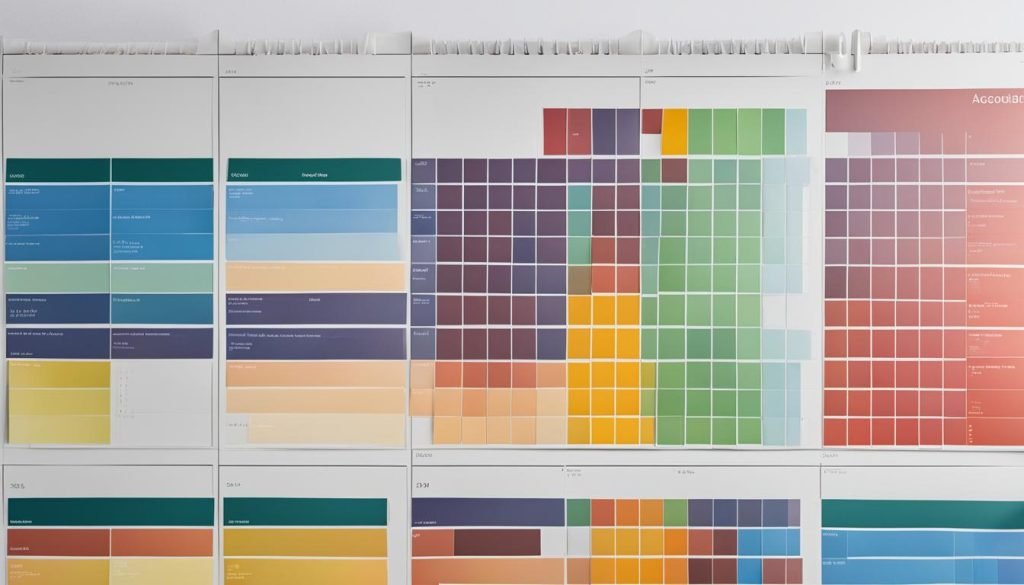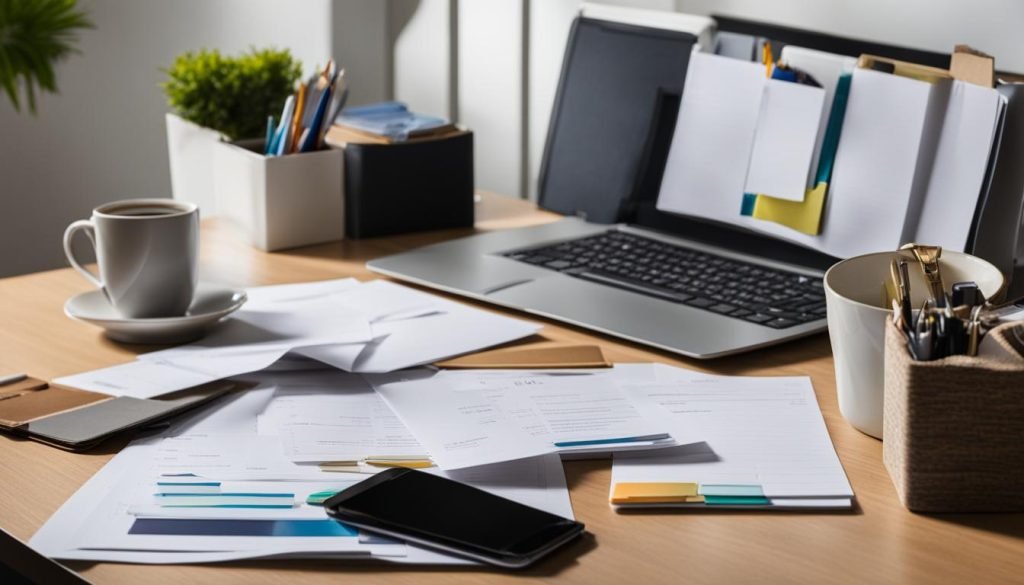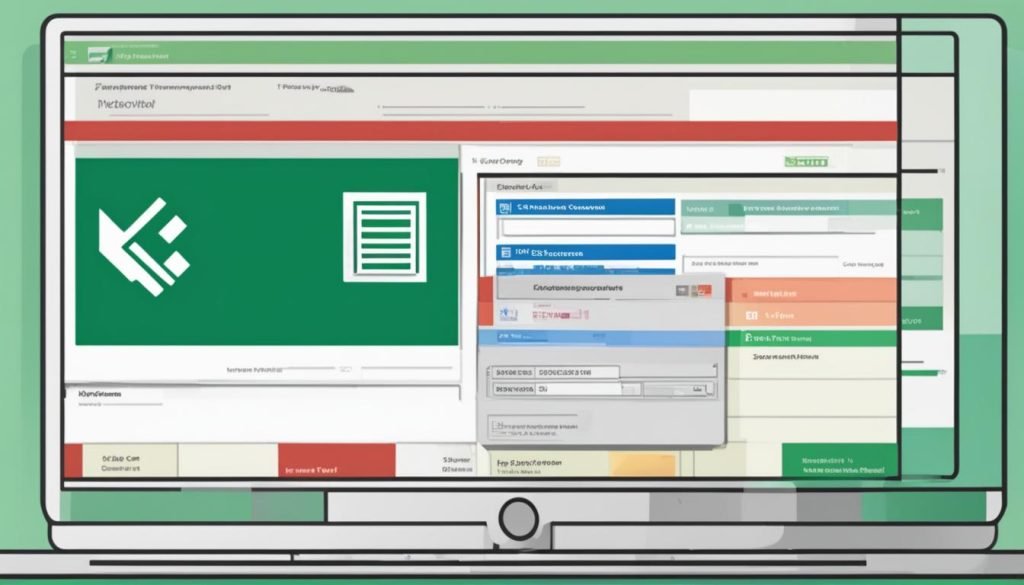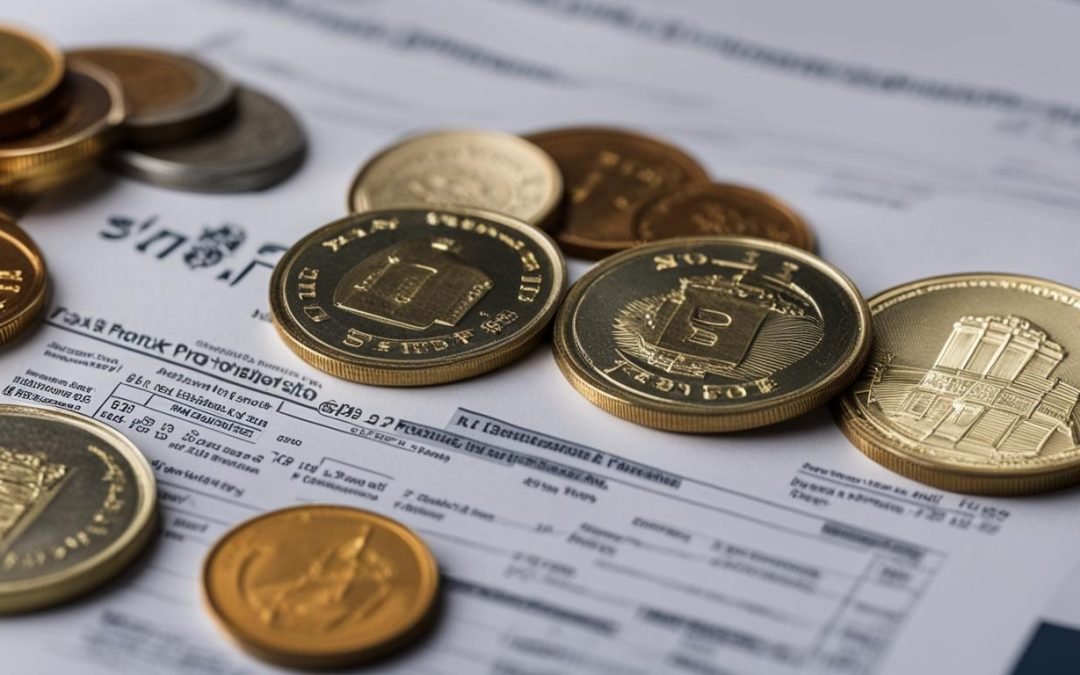Singapore offers favorable taxation rules for sole proprietors that can significantly benefit entrepreneurs and self-employed individuals. Navigating the complex landscape of sole proprietorship singapore tax laws, however, requires a clear understanding of the intricacies involved, such as reporting business income, adherence to accounting periods, proper record-keeping, and knowing the differences between allowable and non-allowable deductions. In this guide, we provide an in-depth look at the sole proprietorship tax in Singapore to help you stay compliant with Singapore tax rules for sole proprietorship.
Key Takeaways
- Understanding the classification of sole proprietors and self-employed individuals in Singapore.
- The importance of choosing the right accounting period for your business.
- Proper record-keeping as mandated by the Inland Revenue Authority of Singapore (IRAS).
- Identifying allowable and non-allowable deductions to accurately assess taxable income.
- Leveraging professional services and tools like VOffice and e-Filing for tax compliance and filing.
- Navigating taxation rules related to business income, tax deductions, tax allowances, and tax obligations for Singaporean sole proprietors.
Identifying Tax Obligations for Sole Proprietors in Singapore
In the competitive landscape of Singapore, sole proprietors need to have a clear understanding of their tax obligations in accordance with the Singapore tax rules for sole proprietorship. Being well-versed with self-employment tax, business income, and associated compliance requirements is crucial for the successful operation and growth of one’s business.
Defining Sole Proprietorship and Self-Employment Tax
Under Singapore’s tax system, self-employed persons are those who earn a living from a trade, business, profession, or vocation, and are typically registered with the Accounting and Corporate Regulatory Authority (ACRA). Self-employed individuals must report income from their trade or business as business income rather than a salary. This includes earnings from freelance work, regardless of the location, and the income will be taxed in the subsequent year, known as the Year of Assessment (YA).
Key Considerations for the Singapore Tax System
Singapore operates on a territorial tax system, which makes it attractive for small business owners and sole proprietors due to the city-state’s strategic location. For tax purposes, it is essential to comprehend the various business structures, as well as acknowledge the taxable activities that encompass operations conducted in an organized manner. It is imperative to report all earnings to ACRA. A tax return income filing threshold exists, with conditions set at an annual net trade income over $6,000 or a taxable yearly revenue of over $22,000.
How VOffice Services Can Assist with Compliance
Complying with local regulations, such as procuring a business address for registration purposes in Singapore, can be challenging for sole proprietors. VOffice, with its virtual office services starting at just $4.75 per month, can help overcome this hurdle and ensure adherence to these requirements. As a result, VOffice is committed to assisting with the establishment of necessary corporate presence, and also providing support for record-keeping and account management. Such assistance is crucial in abiding by Singapore’s tax obligations and successfully filing taxes.
Choosing the Right Accounting Period for Your Business
When starting a business in Singapore, it’s essential to decide on an accounting period. Most businesses settle on a period ending on December 31st each year, but other dates can be chosen. Accounting periods are typically 12 months long and crucial in determining your profits or losses for tax reporting purposes within the Year of Assessment (YA).

As you embark on establishing your company, you should consider the following factors when selecting an accounting period for your business:
- Alignment with the financial year-end of related companies or subsidiaries.
- Convenience for preparing the business income reports and other crucial financial statements.
- Seasonal fluctuations in business operations that may impact the accuracy and relevance of financial data.
Selecting the right accounting period not only ensures compliance with tax regulations but also provides valuable insights into your business’s financial health. The data generated during the accounting period can be used to make informed decisions for growth and profitability.
Proper choice of the accounting period plays a crucial role in maintaining accurate financial records and fulfilling tax obligations. The date selected will impact the evaluation of your business income report and the determination of taxable income for the Year of Assessment.
In conclusion, the accounting period is a critical aspect of your business’s financial management in Singapore. The right accounting period will simplify tax reporting and enable a more accurate understanding of your company’s financial position. By carefully considering your business’s particular needs, you’ll ensure the chosen accounting period aligns with tax regulations and supports your long-term growth and success.
Essential Record-Keeping for Accurate Tax Filings

In Singapore, maintaining complete and accurate accounting records is not only a good business practice but also a necessary obligation for sole proprietors. Proper record-keeping Singapore ensures that your business transactions documentation is readily available when it comes time for IRAS tax filing. Let’s explore how to maintain proper documentations and accounts and understand the importance of statement of accounts.
Maintaining Proper Documentations and Accounts
Sole proprietors are required to keep full and accurate records of all business transactions, including invoices, receipts, vouchers, and other relevant documents. Not only does this practice help monitor the financial health of your business, but it is also crucial for the reliable calculation of your income tax liability. Estimates and improper records are not accepted by IRAS when it comes to income tax calculations and filings.
“Maintaining proper records and accounts is essential for the effective management of your business and compliance with tax obligations.”
Some key components of a reliable record-keeping system include:
- Documenting all sales and purchases
- Recording expenses, such as rent, utility bills, and business supplies
- Keeping bank statements and reconciling them with your accounting records
- Maintaining a record of assets, including equipment, vehicles, and inventory
Proper record-keeping ensures that you have the necessary documentation in place for IRAS tax filing, allowing you to accurately calculate your business income and meet tax obligations.
Understanding the Importance of Statement of Accounts
At the end of each accounting period, statements of accounts must be prepared, summarizing the financial position of your business. These documents are crucial for submitting accurate tax filings and determining your taxable income.
Essential components of a standard statement of accounts include:
- Profit and Loss Account – It presents your business’s revenue and expenses, showing the net profit or loss for the accounting period. It is an essential document for understanding your business’s financial performance.
- Balance Sheet – A snapshot of your business’s assets, liabilities, and owners’ equity at a specific point in time. It provides valuable insights into your business’s financial position and overall health.
For businesses with annual revenue of $200,000 or less, a simplified 2-line statement can be used, showing revenue and adjusted profit or loss. For those with higher revenue, a more detailed 4-line statement is required.
By maintaining proper record-keeping practices and preparing accurate statement of accounts, you ensure that you meet Singapore’s tax obligations and contribute to the long-term success of your business.
Clarifying Sole Proprietorship Tax Deductions and Allowances
Allowable expenses in Singapore are non-taxable expenditures necessary for the operation of the business and can be deducted from taxable income. These include costs such as travelling expenses, public transport expenses, staff remuneration, and monthly entertainment expenses, among others. It’s crucial for sole proprietors to understand what constitutes allowable expenses to accurately assess their adjusted profit or loss for tax purposes.

To help elucidate some of the most common sole proprietorship tax deductions and business expenses deductible in Singapore, here’s an overview of different categories:
- Transportation and travel expenses: These costs cover travel fares, car rentals, parking fees, and business trips. To qualify as deductible, these expenses should directly relate to generating business income.
- Staff remuneration and benefits: Wages, salaries, bonuses, and employee benefits can be deducted so long as they are incurred for business purposes. The expenses must be reasonable and not excessive.
- Office and equipment expenses: Deductible costs include office rent, office furniture, computers, software, telephone services, and office supplies that are necessary for business operations.
- Insurance premiums: Business-related insurance expenses, such as those covering public liability, worker injury compensation, or property protection, are deductible.
- Advertising and promotional costs: Marketing expenses incurred to promote the business or its products and services are typically deductible, including online advertisements, print materials, and event sponsorships.
- Business-related entertainment expenses: Entertaining clients or customers for business purposes can include meal expenses, event tickets, and nominal gifts. These expenses are usually deductible, subject to certain limits.
It’s essential to note that ineligible tax deductions and expenses include capital expenses, drawings taken from the business, fines or penalties, and personal expenses. As a business owner, you must be diligent in documenting your expenses and maintaining proper records to substantiate your claims for Singapore tax allowances.
Understanding what constitutes allowable expenses is crucial for sole proprietors to accurately assess their adjusted profit or loss for tax purposes.
By familiarizing yourself with the various tax deductions and allowances in Singapore, you can optimize your tax savings and ensure compliance with the local tax regulations. In doing so, you’ll be better equipped to navigate the tax landscape and maintain the financial health of your business.
Step-by-Step Guide to E-Filing Your Sole Proprietorship Taxes

Filing your income tax return as a sole proprietor in Singapore has become increasingly convenient with the introduction of the myTax Portal for e-Filing taxes. This online platform simplifies the process of submitting your annual tax returns on time, while adhering to sole proprietorship tax filing requirements. Below, we discuss how you can activate your account and access the necessary e-Filing services via the myTax Portal. Additionally, we detail how virtual office support services in Singapore can transform the tax filing process by providing comprehensive assistance and guidance.
Activating myTax Portal and Accessing E-Filing Services
To begin, follow these simple steps to activate your myTax Portal account:
- Visit the myTax Portal on your preferred web browser.
- Log in using your Singpass ID and password.
- Once logged in, you will need to provide some basic personal and business information to activate the account.
Upon activation, you can then access the e-Filing services for your sole proprietorship taxes. Just log in to your account and declare your income and expenses by inputting the necessary information into the designated sections. E-Filing has several key advantages:
- Longer filing deadline– E-Filing allows you to submit your taxes up to two weeks later than traditional paper filing.
- Pre-filled tax information– The myTax Portal automatically pre-fills certain tax information to simplify the process and minimize human errors.
- Easy document uploads– Upload relevant supporting documents directly to the portal with ease.
How to Simplify the Tax Filing Process with Virtual Office Support
In addition to utilizing the myTax Portal, employing virtual office support services can further streamline the tax filing process for sole proprietors in Singapore. Virtual office support companies such as VOffice offer a range of services tailored to assist business owners with their tax filings. These services can include:
- Business registration– Ensuring your business is properly registered and compliant with local requirements.
- Form management– Expert assistance in managing and completing all necessary tax forms.
- Record-keeping– Accurate tracking of relevant tax records, ensuring that your filings are comprehensive and up-to-date.
By outsourcing these tasks to a reliable virtual office support provider, sole proprietors can focus on their core business functions while maintaining fiscal compliance and efficiency in their annual tax filing obligations. This approach helps minimize potential errors while maximizing potential tax deductions and allowances.
In conclusion, the combination of the myTax Portal for e-Filing taxes in Singapore and virtual office support services provides an efficient and streamlined solution for sole proprietors looking to fulfill their annual tax filing requirements. Embrace this technology and expert support to enhance the accuracy and timeliness of your tax submissions, ultimately saving time and reducing stress associated with tax filings.
Conclusion
In conclusion, understanding the sole proprietorship taxation in Singapore is crucial for individuals and small businesses operating in the city-state. This includes being aware of the classification as a self-employed person, choosing the right accounting period, maintaining meticulous records, and knowing the allowable deductions. Additionally, it’s essential to utilize services like e-Filing through the myTax Portal to ensure accurate and timely tax submissions.
Leveraging professional services, such as those offered by VOffice business solutions, provides distinct benefits for tax success in Singapore. These services can offer assistance in keeping proper records, preparing statements of accounts, and simplifying e-Filing processes. By relieving the administrative burden of tax compliance, it enables sole proprietors to focus on growing their business and maximizing the potential tax benefits available.
Following this sole proprietorship Singapore tax guide and implementing professional tax services will not only ensure you adhere to Singapore business taxation rules, but also unlock the full potential of your business. With proper understanding and execution, sole proprietors can confidently navigate the taxation guidelines and achieve success in the competitive Singapore business environment.
FAQ
What is the difference between a sole proprietorship and self-employment tax?
In Singapore, sole proprietors are considered self-employed individuals. They earn a living from a trade, business, profession, or vocation and are required to report their income as business income rather than a salary. Singapore tax rules for sole proprietorship apply to these business owners, and their income is taxed at individual rates.
How do I choose the right accounting period for my business?
Most businesses in Singapore choose an accounting period that ends on December 31st each year. However, you can select another date if preferred. Accounting periods are typically 12 months long and are crucial for determining your profits or losses for tax reporting purposes within the Year of Assessment (YA).
What records should be maintained by a sole proprietor for tax filing purposes?
Sole proprietors are obligated to maintain full and accurate records of all their business transactions. These records should include invoices, receipts, vouchers, and other relevant documents. Proper order of these records and accounts is necessary as estimates and improper records are not accepted by IRAS for income tax calculations and filings.
What are the allowable expenses for sole proprietorship tax deductions in Singapore?
Allowable expenses are non-taxable expenditures necessary for the operation of the business and can be deducted from taxable income. These expenses include costs such as travelling expenses, public transport expenses, staff remuneration, and monthly entertainment expenses, among others. Understanding what constitutes allowable expenses is crucial for accurately assessing adjusted profit or loss for tax purposes.
How do I e-File my taxes as a sole proprietor in Singapore?
Sole proprietors can access e-Filing services through IRAS’s myTax Portal using their Singpass. To e-File, individuals should first activate their myTax Portal account, then log in to declare their income and expenses. E-Filing offers benefits such as a longer filing deadline, pre-filled tax information, and ease of uploading supporting documents.
How can virtual office support simplify the tax filing process for sole proprietors?
Virtual office support services, like those provided by VOffice, can assist with managing necessary forms, business registration, and keeping track of all relevant tax records. By utilizing virtual office services, sole proprietors can ensure tax compliance and efficient handling of their annual tax filing obligations while focusing on running their business.

